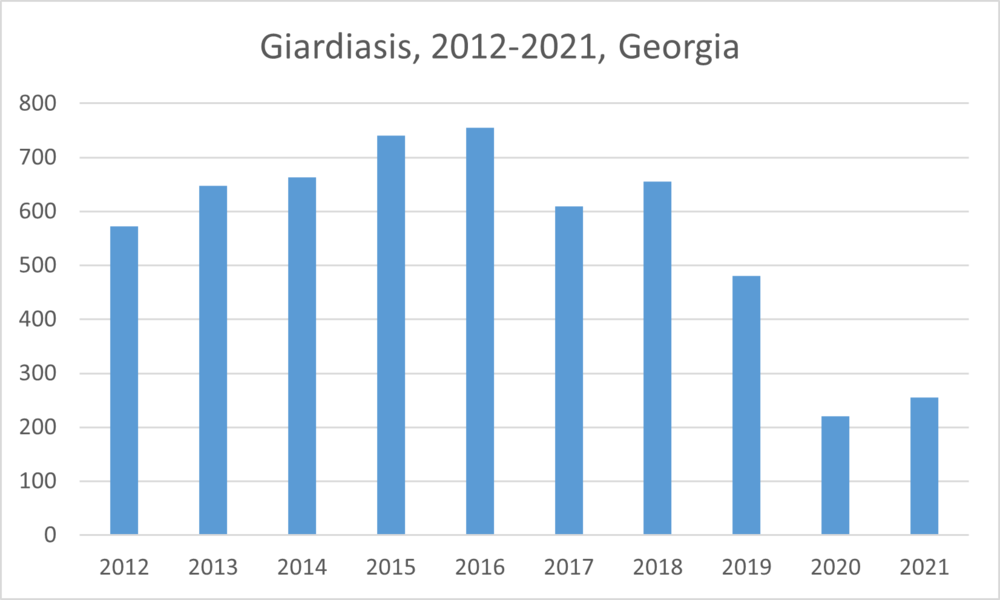
Giardia
Giardiasis Basics
Symptoms of giardiasis usually begin about 1 to 3 weeks after ingesting the parasite. Symptoms commonly include: diarrhea, gas, greasy stools that tend to float, abdominal pain or cramping, nausea, vomiting, and/or dehydration. Symptoms commonly last 2 to 6 weeks in people with healthy immune systems.
Giardia lives in the intestines of infected people and animals and is shed in stool. A person can become infected after accidentally swallowing the parasite. The Giardia parasite can be found in soil, food, water, or surfaces contaminated with feces from infected humans or animals. People at highest risk for illness include: travelers to countries where giardiasis is common, people in childcare settings, anyone with close contact with someone who is sick with giardiasis, backpackers or hikers who drink untreated water from springs, lakes, or rivers, people who get their household water from a shallow well, people who have contact with infected animals or animal environments contaminated with poop, people who have contact with poop during sexual activity, swimmers who swallow water in pools, hot tubs, splash pads, lakes, rivers, or springs, and people with weakened immune systems.
Stool specimens must be tested in order for a person to be diagnosed with giardiasis. Several drugs can be used to treat Giardia infection, including metronidazole, tinidazole, and nitazoxanide. All people diagnosed with giardiasis may not need treatment. It’s important to discuss treatment options with a healthcare provider as it may differ based on each individual’s needs.
The best way to prevent Giardia infection is by practicing good hand hygiene. Wash your hands with soap and water before eating or preparing food, after changing diapers, and after using the restroom. Avoid swallowing water from ponds, lakes, or recreational water (i.e. pools and waterparks). Avoid sexual activity with persons who have diarrhea or who recently recovered from Giardia. Be sure to clean up properly after ill pets and people.
See CDC website for more information.
https://www.cdc.gov/giardia/about/
Giardia and Pets
Dogs and cats can also get Giardia infections, however, the type of Giardia that infects pets is not usually the same one that infects humans. The risk for a person to get giardiasis from his or her dog or cat is small.
Please see this CDC website for more information.
https://www.cdc.gov/giardia/about/about-giardia-and-pets.html
Giardiasis for Healthcare Providers
Giardiasis is a notifiable disease in Georgia, which means that every person with laboratory-diagnosed illness should be reported to the Georgia Department of Public Health. The number of cases is reported from the state to the Centers for Disease Control and Prevention (CDC) for national disease surveillance.
Please refer to this and other CDC websites for more information on Giardia.
https://www.cdc.gov/giardia/publications/
Giardiasis Statistics for Georgia
Giardiasis case counts were relatively stable prior to 2019 then they decreased during the COVID-19 pandemic in 2020-2021. Cases are reported slightly more frequently in the summer months of July through October, but the disease is reported year-round.

Page updated 12/30/2022